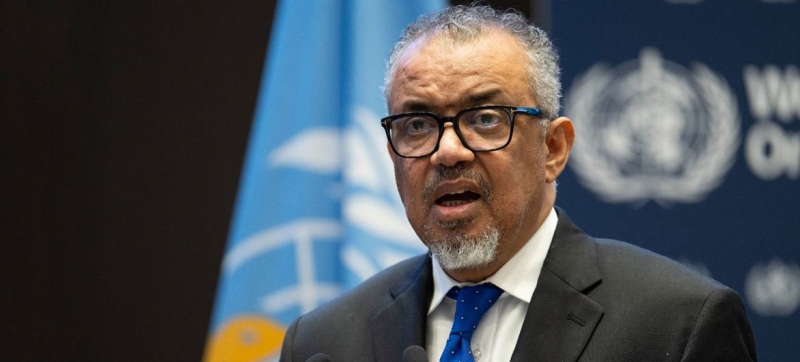
WHO Director-General speaks at a briefing in Geneva. Photo from the archive WHO chief’s briefing: Ebola in Uganda, DRC, Gaza and the suspension of US funding Health
Nine cases of Ebola fever have been confirmed in Uganda so far, including one death. More than 260 people who had contact with the patients have been identified and are under observation, World Health Organization Director-General Tedros Adhanom Ghebreyesus said at a briefing for journalists in Geneva on Wednesday.
Ebola in Uganda
“We are providing operational support to the Ugandan authorities in the areas of surveillance, laboratory testing, logistics, infection prevention and control,” he said. “In addition, we are ensuring the supply of all necessary supplies from our logistics hubs in Nairobi and Dubai.”
There are currently no officially approved vaccines or therapeutics against the Ebola strains seen in Uganda, the WHO chief said, but thanks to the government’s preparedness measures after the previous outbreak and global collaboration on research, WHO has been able to begin testing a potentially effective new vaccine.
Tedros Ghebreyesus said he had released $2 million from the WHO Contingency Fund to support the response, in addition to the $1 million already contributed to the initial response.
DRC situation
Turning to the surge in violence in eastern Democratic Republic of Congo, the WHO chief said only a third of people in need of health services in North and South Kivu provinces were unable to access them. Pregnant women are unable to reach health facilities for safe delivery, and the threat of infectious diseases, including monkeypox and cholera, has increased dramatically.
“Hospitals and morgues are overwhelmed,” Dr Ghebreyesus continued. “Some health workers have had to flee, while others are working around the clock. WHO continues to work on the ground, despite the insecurity. Anticipating the escalation of violence, we have been working since November to pre-position supplies, including medicines and fuel. However, existing stocks are running out as many warehouses have been looted.”
Gaza Aid
Since the ceasefire began in January, WHO has sent 139 vehicles into Gaza carrying supplies for 1.6 million people. The organization has assisted in the evacuation of 414 patients and 588 accompanying persons. In response to the escalating violence in the West Bank, the WHO has sent emergency supplies to local hospitals.
Read also:
What is the World Health Organization and why is it important?
“We call on all parties to ensure full compliance with the ceasefire in Gaza, the release of hostages and an end to violence in the West Bank,” Dr. Ghebreyesus said.
US funding
The head of the World Health Organization recalled that much of WHO’s emergency response in Uganda, the DRC, Gaza, Sudan and elsewhere is funded by the United States.
“As we have said, we regret the United States’ intention to withdraw from WHO, and we would welcome the opportunity for constructive dialogue,” Dr. Ghebreyesus said.
The US government, he continued, is also taking actions that are not tied to WHO membership but could have a serious impact on global health. For example, the suspension of funding for the President’s Emergency Plan for AIDS Relief has led to the interruption of HIV treatment, testing and prevention services in 50 countries.
The sudden suspension of US funding and the closure of a number of US institutions are also affecting global efforts to eradicate polio and combat the spread of monkeypox in Africa.
“We ask the US to consider continuing funding, at least until alternative solutions are found,” the WHO Director-General said.
